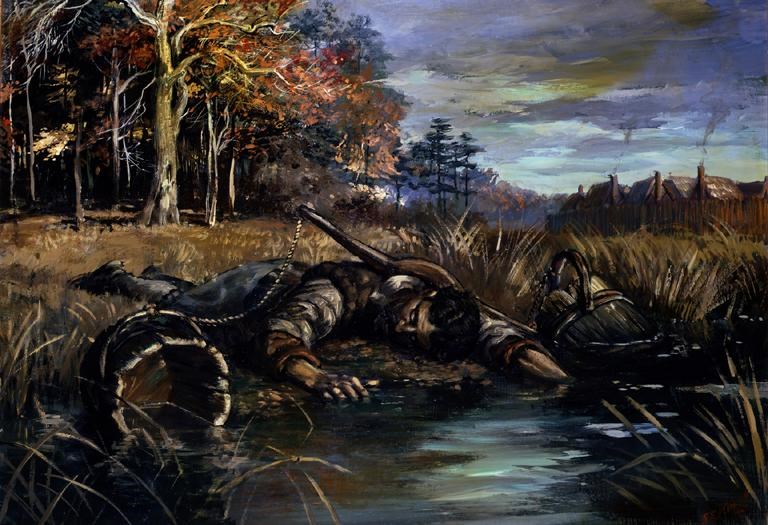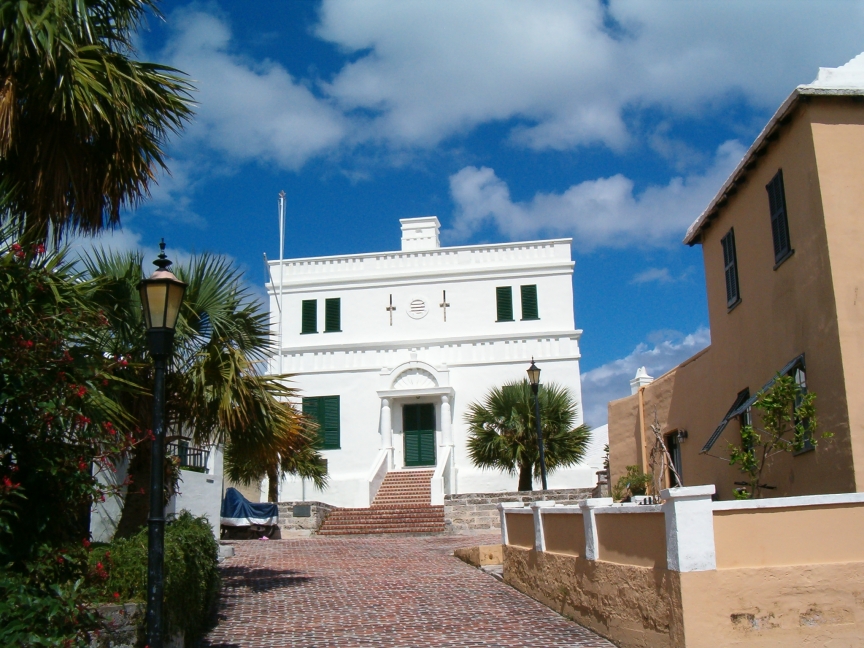|
Government Of Bermuda
Bermuda is the oldest British Overseas Territory, and the oldest self-governing British Overseas Territory, and has a great degree of internal autonomy through authority and roles of governance delegated to it by the national Government (the British Government, which is ultimately responsible for the governance of all British territory). Its parliament held its first session in 1620, making it the third-oldest continuous parliament in the world. As part of the British realm, King Charles III is head of state and is represented in Bermuda by a Governor, whom he appoints on the advice of the British Government. The Governor has special responsibilities in four areas: external affairs, defence, internal security, and policing. Internally, Bermuda is a parliamentary representative democratic dependency. The premier is the head of government, and there is a multi-party system. The judiciary is independent of the executive and the legislature. Military defence is officially the respo ... [...More Info...] [...Related Items...] OR: [Wikipedia] [Google] [Baidu] |
British Overseas Territory
The British Overseas Territories (BOTs), also known as the United Kingdom Overseas Territories (UKOTs), are fourteen territories with a constitutional and historical link with the United Kingdom. They are the last remnants of the former British Empire and do not form part of the United Kingdom itself. The permanently inhabited territories are internally self-governing, with the United Kingdom retaining responsibility for defence and foreign relations. Three of the territories are inhabited only by a transitory population of military or scientific personnel. All but one of the rest are listed by the UN Special Committee on Decolonization as non-self-governing territories. All fourteen have the British monarch as head of state. three territories (the Falkland Islands, Gibraltar and the Sovereign Base Areas of Akrotiri and Dhekelia on the island of Cyprus) are the responsibility of the minister of state for Europe and the Americas; the minister responsible for the re ... [...More Info...] [...Related Items...] OR: [Wikipedia] [Google] [Baidu] |
London Company
The London Company, officially known as the Virginia Company of London, was a division of the Virginia Company with responsibility for colonizing the east coast of North America between latitudes 34° and 41° N. History Origins The territory granted to the London Company included the eastern coast of North America from the 34th parallel ( Cape Fear) north to the 41st parallel (in Long Island Sound). As part of the Virginia Company and Colony, the London Company owned a large portion of Atlantic and inland Canada. The company was permitted by its charter to establish a settlement within this area. The portion of the company's territory north of the 38th parallel was shared with the Plymouth Company, with the stipulation that neither company found a colony within 100 miles (161 km) of the other. The London Company made landfall on 26 April 1607, at the southern edge of the mouth of the Chesapeake Bay, which they named Cape Henry, near present-day Virginia Beach. Dec ... [...More Info...] [...Related Items...] OR: [Wikipedia] [Google] [Baidu] |
House Of Assembly Of Bermuda
The House of Assembly is the lower house of the Parliament of the British Overseas Territory of Bermuda. The house has 36 Members of Parliament (MPs), elected for a term of five years in single seat constituencies using first-past-the-post voting. Bermuda now has universal voting with a voting age of 18 years. Voting is non-compulsory. The presiding officer of the House is called the Speaker. Term and election date Under section 49(2) of the Bermuda Constitution Order 1968, the Parliament of Bermuda must be dissolved by the Governor five years after its first meeting following the previous elections (unless the Premier advises the Governor to dissolve parliament sooner). Under section 51(1) of the Constitution, a general election must be held no later than three months after a dissolution. The House can force the resignation of the government by passing a vote of no-confidence in the government. History The House of Assembly was originally the only house of Bermuda's Par ... [...More Info...] [...Related Items...] OR: [Wikipedia] [Google] [Baidu] |
Cabinet (government)
A cabinet is a body of high-ranking state officials, typically consisting of the executive branch's top leaders. Members of a cabinet are usually called cabinet ministers or secretaries. The function of a cabinet varies: in some countries, it is a collegiate decision-making body with collective responsibility, while in others it may function either as a purely advisory body or an assisting institution to a decision-making head of state or head of government. Cabinets are typically the body responsible for the day-to-day management of the government and response to sudden events, whereas the legislative and judicial branches work in a measured pace, in sessions according to lengthy procedures. In some countries, particularly those that use a parliamentary system (e.g., the UK), the Cabinet collectively decides the government's direction, especially in regard to legislation passed by the parliament. In countries with a presidential system, such as the United States, ... [...More Info...] [...Related Items...] OR: [Wikipedia] [Google] [Baidu] |
Privy Council Of England
The Privy Council of England, also known as His (or Her) Majesty's Most Honourable Privy Council (), was a body of advisers to the sovereign of the Kingdom of England. Its members were often senior members of the House of Lords and the House of Commons, together with leading churchmen, judges, diplomats and military leaders. The Privy Council of England was a powerful institution, advising the sovereign on the exercise of the royal prerogative and on the granting of royal charters. It issued executive orders known as Orders in Council and also had judicial functions. History During the reigns of the Norman monarchs, the English Crown was advised by a (Latin for "royal court"), which consisted of magnates, clergy and officers of the Crown. This body originally concerned itself with advising the sovereign on legislation, administration and justice. Later, different bodies assuming distinct functions evolved from the court. The courts of law took over the business of dispen ... [...More Info...] [...Related Items...] OR: [Wikipedia] [Google] [Baidu] |
Ex Officio Member
An ''ex officio'' member is a member of a body (notably a board, committee, council) who is part of it by virtue of holding another office. The term '' ex officio'' is Latin, meaning literally 'from the office', and the sense intended is 'by right of office'; its use dates back to the Roman Republic. According to '' Robert's Rules of Order'', the term denotes only how one becomes a member of a body. Accordingly, the rights of an ''ex officio'' member are exactly the same as other members unless otherwise stated in regulations or bylaws. It relates to the notion that the position refers to the position the ex officio holds, rather than the individual that holds the position. In some groups, ''ex officio'' members may frequently abstain from voting. Opposite notions are dual mandate, when the same person happens to hold two offices or more, although these offices are not in themselves associated; and personal union, when two states share the same monarch. For profit and nonprofit ... [...More Info...] [...Related Items...] OR: [Wikipedia] [Google] [Baidu] |
Captain-General
Captain general (and its literal equivalent in several languages) is a high military rank of general officer grade, and a gubernatorial title. History The term "Captain General" started to appear in the 14th century, with the meaning of Commander in Chief of an army (or fleet) in the field, probably the first usage of the term General in military settings. A popular term in the 16th and 17th centuries, but with various meanings depending on the country, it became less and less used in the 18th century, usually replaced with, simply, General or Field Marshal; and after the end of the Napoleonic Wars it had all but disappeared in most European countries, except Spain and former colonies. See also '' Feldhauptmann'' ("field captain"). Other ranks of general officer, as distinct from field officer, had the suffix "general"; e.g. major general, lieutenant general, brigadier general, colonel general. Republic of Venice In the Republic of Venice, it meant the commander in chief in wa ... [...More Info...] [...Related Items...] OR: [Wikipedia] [Google] [Baidu] |
English Army
The English Army existed while was an independent state and was at war with other states, but it was not until the Interregnum and the New Model Army (raised by Parliament to defeat the Royalists in the ) that England acquired a peacetime professional |
Militia
A militia () is generally an army or some other fighting organization of non-professional soldiers, citizens of a country, or subjects of a state, who may perform military service during a time of need, as opposed to a professional force of regular, full-time military personnel; or, historically, to members of a warrior-nobility class (e.g. knights or samurai). Generally unable to hold ground against regular forces, militias commonly support regular troops by skirmishing, holding fortifications, or conducting irregular warfare, instead of undertaking offensive campaigns by themselves. Local civilian laws often limit militias to serve only in their home region, and to serve only for a limited time; this further reduces their use in long military campaigns. Beginning in the late 20th century, some militias (in particular officially recognized and sanctioned militias of a government) act as professional forces, while still being "part-time" or "on-call" organizations. For instanc ... [...More Info...] [...Related Items...] OR: [Wikipedia] [Google] [Baidu] |
Lord-Lieutenant
A lord-lieutenant ( ) is the British monarch's personal representative in each lieutenancy area of the United Kingdom. Historically, each lieutenant was responsible for organising the county's militia. In 1871, the lieutenant's responsibility over the local militia was removed. However, it was not until 1921 that they formally lost the right to call upon able-bodied men to fight when needed. Lord-lieutenant is now an honorary titular position usually awarded to a retired notable person in the county. Origins England and Wales Lieutenants were first appointed to a number of English counties by King Henry VIII in the 1540s, when the military functions of the sheriffs were handed over to them. Each lieutenant raised and was responsible for the efficiency of the local militia units of his county, and afterwards of the yeomanry and volunteers. He was commander of these forces, whose officers he appointed. These commissions were originally of temporary duration, and only when t ... [...More Info...] [...Related Items...] OR: [Wikipedia] [Google] [Baidu] |
County
A county is a geographic region of a country used for administrative or other purposes Chambers Dictionary, L. Brookes (ed.), 2005, Chambers Harrap Publishers Ltd, Edinburgh in certain modern nations. The term is derived from the Old French denoting a jurisdiction under the sovereignty of a count (earl) or a viscount.The Oxford Dictionary of English Etymology, C. W. Onions (Ed.), 1966, Oxford University Press Literal equivalents in other languages, derived from the equivalent of "count", are now seldom used officially, including , , , , , , , and ''zhupa'' in Slavic languages; terms equivalent to commune/community are now often instead used. When the Normans conquered England, they brought the term with them. The Saxons had already established the districts that became the historic counties of England, calling them shires;Vision of Britai– Type details for ancient county. Retrieved 31 March 2012 many county names derive from the name of the county town (county seat) w ... [...More Info...] [...Related Items...] OR: [Wikipedia] [Google] [Baidu] |
.jpg)




